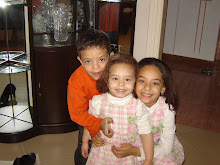
Full time Student, mother of three, and a wife. I think that sums it up. Is my plate full? It's full and over flowing. So I'm behind on everything, really behind! Now I'm playing the catch up game. Wow, what was this blog even about? Oh ya! ADHD.
Last I talked about signs to look for, one of those signs was speech problems, or delayed speech. Not all children with delayed speech or speech problem necessarily have ADHD, but it is common.
Recently as I researched sources online, I stumbled upon a study by: Zvia Breznitz. This study compares the speech and vocalization patterns of boys with ADHD against boys with Dyslexia and boys without learning disabilities. Since this was a very long study, that consisted of about 30 pages, I'm not going to bore you with all the detail. Here is the sum up.
Speech and ADHD. Can Speech be used as a diagnosis for ADHD in children?
* Researchers have found that children with ADHD often have difficulty self-monitoring their speech.
* Children with ADHD have a language behavior disability.
* They have less targeted speech and larger sections of disruptive speech.
Research
* 105 boys split into three groups
* 35 with ADHD
* 35 with dyslexia
* 35 control group with no learning disability
Results
* Boys with ADHD had a higher degree of behavioral disorders than did the boys in the other groups.
* The boys with ADHD were observed as exhibiting hyperactive behavior.
* The participants with ADHD did not experience and reading problems but were less proficient on a mathematical sequence completion task, which required attention and concentration.
* The vocalization duration average was longer, the pause duration shorter, the pause frequency greater, the turn change frequency lower, and the length of response time during turn change longer compared with the boys in the other group.
* They also spoke with a higher pitch.
* Since children with ADHD lack attention the gabs created in the speech flow had two possible sources, either they were distracted or they were concentrating on how to reenter the conversation.
* Some of the boys with ADHD rambled, connected associations to certain words and ideas, and had trouble with verbal flow and stopped their verbal flow to allow their conversation partner a turn and then returned to the flow without any permission.
* Boys with ADHD were louder than the other boys.
* The production of sound activity requires delicate coordination of different speech organs (i.e. vocal chords, tongue, and so forth), and boys with ADHD found that difficult to control.
* The research also shows evidence that the neurological maturity (leading to functional ability) of boys with ADHD is different from that of the control groups.
* Boys with ADHD lacked the ability to evaluate and regulate the muscles power, which caused the voice pitch they produced to be less varied than that of the control group. This can stem from late neurological maturity.
* They had difficulty adapting to the environment’s demands and therefore they tended to shout more.
Conclution of the study
* Speech and temporal voice measure may be used as the groundwork for locating physical, objective, and easy-to- measure factors that distinguish between boys with ADHD and those without.
* The present study constituted a step in contributing to the theory dealing with the cognitive patterns of boys with ADHD.
* Speech and vocalization measures may be used as an objective measure for finding the difference between the cognitive processing if boys with ADHD and those of other children.
There are many other studies out that deal with children with ADHD, but believe it or not, there is still a struggle with trying to determine what is the best treatment. At least knowing what to look for is a step in the right direction. The only problem, as a parent, I need more than just a step, I need clear answers, no more confusion. I need someone to tell me strait out how to deal and treat my son.

No comments:
Post a Comment